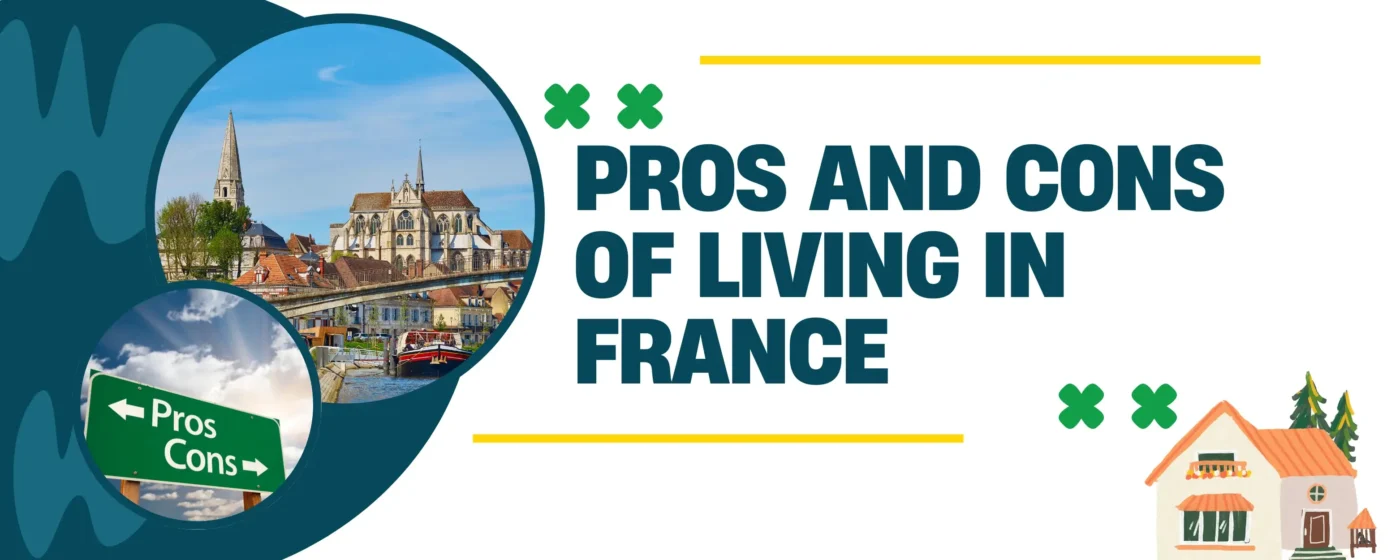Beyond the romantic attraction of the Eiffel Tower, France has much more to offer international students – an experience that transcends tourism. Imagine immersing yourself in a vibrant culture while pursuing top-tier education. France isn’t just a travel destination, but also a launching pad for your future. Let’s discover seven compelling reasons why France stands out as an unmatched study-abroad option. Come, let’s dive in!
Key Takeaways
- Know about the top education at world-famous schools such as the Sorbonne & INSEAD, plus lots of courses in English if you’re not fluent in French yet.
- There is a way of affordable compared to the US or UK through the Tuition, with plenty of scholarships & benefits that make living costs manageable.
- Know how the French language is super welcoming with a huge international student community, tons of cultural events, & great discounts that make student life fun & affordable.
- Learning French while you’re here gives you a serious edge. It’s one of the most spoken languages globally & can open doors in careers worldwide.
- There is research or tech if you’re into it, then France’s cutting-edge labs & internships give you hands-on experience & connections that can launch your career.
High-Quality Education
French universities and Grandes Écoles consistently rank among the best in the world. Whether you’re into business, art, engineering, or political science, you’ll find a programme that’s globally respected.
Institutions like the Sorbonne, Sciences Po, and INSEAD are some of the most highly prestigious institutions not only in Europe, but all over the globe. The Sorbonne is known for its excellence in arts, humanities, and sciences, offering a vast range of academic disciplines. Sciences Po is a top option for students aiming for careers in political science, international relations, and public affairs.
INSEAD stands out as a leading business school, famous for its MBA program. Beyond these impressive institutions, France also houses numerous institutions offering a variety of courses from fashion and culinary arts to cutting-edge science and engineering, the variety is immense.
And if you’ve heard that you must be fluent in French to study here, relax. Over 1,500 programmes are taught entirely in English. But learning French while you’re here? That’s a bonus skill that can set you apart in your career.
Affordable Tuition Fees
Studying in France is also much cheaper than studying in the US or the UK because the French government greatly supports public universities. This means that even for students from other countries, tuition fees are quite low! Tuition fees at public universities in France are far lower than in many other countries. Most international students pay around €2,770–€3,770 per year.
The cherry on top is that France offers many ways to get financial help. For example, there’s the famous Eiffel Excellence Scholarship, which provides money for living costs, travel, and more, especially for Master’s and PhD students. You can also find other government aid like housing benefits, plus scholarships from universities or local areas. Add in student discounts for transport, meals, and cultural events, and you’ll see why France is a smart financial choice too.
Multicultural and Student-Friendly Environment
With over 400,000 international students, France is one of the most popular study-abroad destinations worldwide. You’ll study in an inclusive, global environment where diversity is valued. Cities like Paris, Lyon, Toulouse, and Grenoble have vibrant student communities, affordable living options, and countless cultural events throughout the year.
French cities also cater well to students, with discounts on transport, cinema tickets, museum passes, and even meals through university cafeterias. This multicultural mix helps you build friendships and networks that stretch across borders.
Add French to Your Resume
French is the fifth most spoken language in the world. Even if you arrive with zero French, you’ll pick it up quickly through daily life. It is spoken on five continents and is one of the most valuable languages in global business, diplomacy, and international relations. By studying in France, you immerse yourself in a French-speaking environment and often get the chance to take free or low-cost language courses as part of your studies.
Bilingual candidates, especially those who speak English and French, stand out to employers in Europe, Africa, Canada, and beyond.
A Hub of Innovation and Research
France ranks among the top countries in Europe for research and development. With over 64 Nobel Laureates and countless scientific breakthroughs, the country remains at the forefront of innovation. Students in fields like engineering, physics, IT, medicine, and artificial intelligence benefit from cutting-edge laboratories and partnerships between universities and leading global companies.
International students also get access to internships and research programmes in sectors driving the global economy. If you’re pursuing a master’s or PhD, you’ll benefit from access to advanced facilities, labs, and international collaborations that can open doors to exciting career paths.
Did You Know?
- France has a dual higher education system! Besides traditional public universities, there are also highly prestigious “Grandes Écoles” (like engineering or business schools) which often have more competitive entrance exams and offer very specialized, intensive programs.
- France has one of the highest numbers of Nobel laureates in literature.
- France has a unique system for student welfare. International students can often access social assistance like housing aid (CAF), discounted public transport, and even significantly cheaper meals at university restaurants (Crous), making student life more affordable!
Frequently Asked Questions
Can international students work in France while studying?
Yes, international students are allowed to work part-time (up to 964 hours per year, which is roughly 20 hours per week) to help cover their living expenses. During academic breaks, you can often work full-time.
What are the visa requirements for studying in France?
Non-EU/EEA/Swiss citizens generally need a long-stay student visa (VLS-TS). The application process typically involves applying through Campus France in your home country, providing proof of admission, financial resources (around €615/month), accommodation, and health insurance.
What is the cost of living for students in France?
The cost of living varies depending on the city. Paris is the most expensive, while smaller cities like Lyon, Toulouse, or Montpellier are more affordable. On average, students should budget €800 to €1,500 per month, covering rent, food, transportation, and leisure. Students can also benefit from housing aid (CAF) and discounted student meals.





